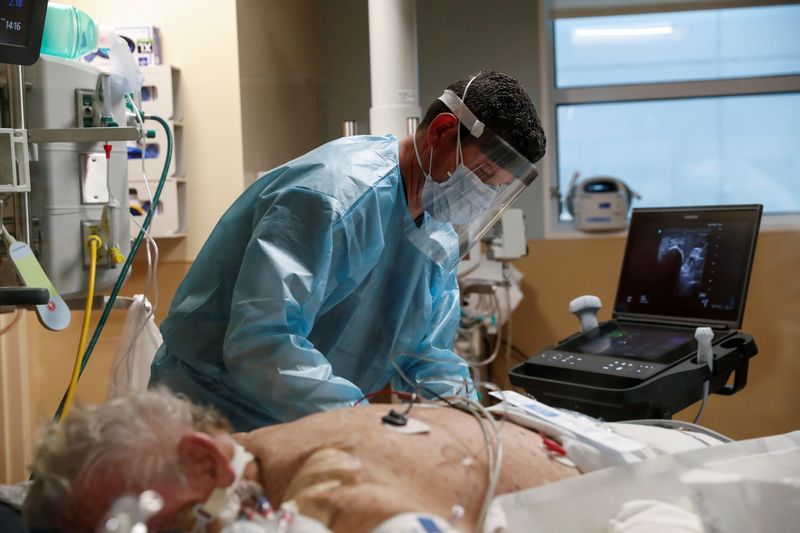By Howard Schneider
WASHINGTON (Reuters) - The United States squandered both money and lives in its response to the coronavirus pandemic, and it could have avoided nearly 400,000 deaths with a more effective health strategy and trimmed federal spending by hundreds of billions of dollars while still supporting those who needed it.
That is the conclusion of a group of research papers released at a Brookings Institution conference this week, offering an early and broad start to what will likely be an intense effort in coming years to assess the response to the worst pandemic in a century.
U.S. COVID-19 fatalities could have stayed under 300,000, versus a death toll of 540,000 and rising, if by last May the country had adopted widespread mask, social distancing, and testing protocols while awaiting a vaccine, estimated Andrew Atkeson, economics professor at University of California, Los Angeles.
He likened the state-by-state, patchwork response to a car's cruise control. As the virus worsened people hunkered down, but when the situation improved restrictions were dropped and people were less careful, with the result that "the equilibrium level of daily deaths ... remains in a relatively narrow band" until the vaccine arrived.
Atkeson projected a final fatality level of around 670,000 as vaccines spread and the crisis subsides. The outcome, had no vaccine been developed, would have been a far-worse 1.27 million, Atkeson estimated.
The economic response, while mammoth, also could have been better tailored, argued University of California, Berkeley economics professor Christine Romer. She joins former Treasury Secretary Lawrence Summers and several others from the last two Democratic administrations in criticizing the spending authorized since last spring, including the Biden team's $1.9 trillion American Rescue Plan.
While she said the federal government's more than $5 trillion in pandemic-related spending won't likely trigger a fiscal crisis, she worries that higher-priority investments will be deferred because of allocations to initiatives like the Paycheck Protection Program.
Those forgivable small business loans were "an interesting and noble experiment," but were also "problematic on many levels," including an apparent cost of hundreds of thousands of dollars for each job saved, she said.
"Spending on programs such as unemployment compensation and public heath was exactly what was called for," she wrote, but other aspects, particularly the generous one-time payments to families, were "largely ineffective and wasteful."
"If something like the $1 trillion spent on stimulus payments that did little to help those most affected by the pandemic ends up precluding spending $1 trillion on infrastructure or climate change in the next few years, the United States will have made a very bad bargain indeed," Romer wrote.
Biden administration officials, including Treasury Secretary Janet Yellen, argue the full package was needed to be sure all workers and families are kept economically intact until the job market recovers.
In a separate paper, Minneapolis Federal Reserve researchers Krista Ruffini and Abigail Wozniak concluded the federal programs largely did what they intended by supporting income and spending, with the impact seen in how consumption changed in response to the approval and lapse of different government payments.
But they also found room for improvement.
Evidence of the PPP's effectiveness in job retention, for example, was "mixed," they found, and increases in food assistance didn't account for things like higher grocery prices.
"Food insecurity remained elevated throughout 2020," they noted.
The aim now, they said, should be on determining what worked in order to make the response to any similar crisis more effective.
"The 2020 social insurance system response had many successes," they said. "Given the scope and scale of the pandemic response, it is critical we continue to evaluate these efforts to understand the full extent of their reach, which populations were helped, who was left out."
